General
Makerere Inducts the 2nd Cohort of IGE Fellows for Uganda
Published
4 years agoon
By
Jane Anyango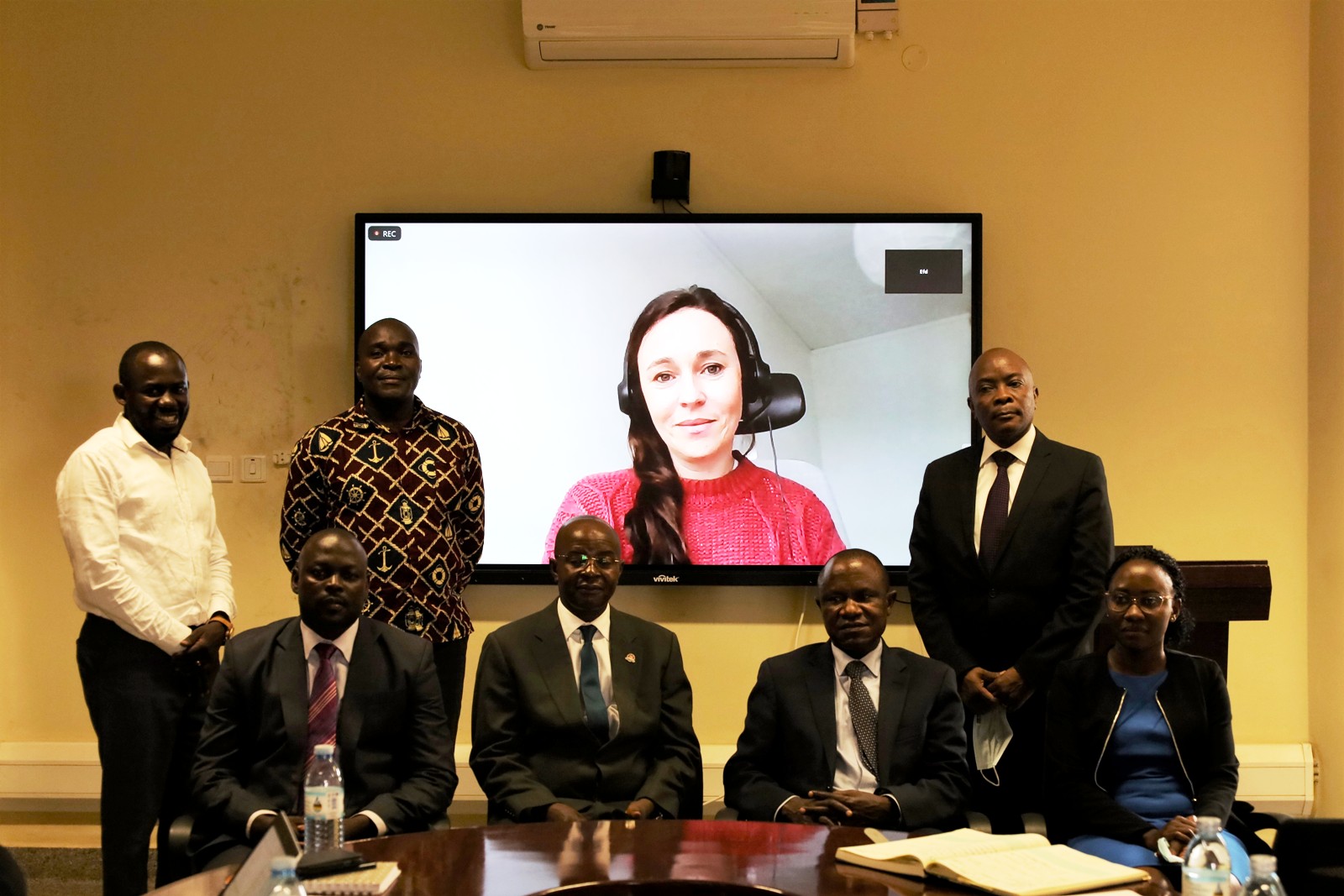
Makerere University recruited the first Inclusive Green Economy (IGE) Cohort 2021 in December 2020 and subsequently launched the program in June, 2021 with six (6) senior public servants nominated from the Ministry of Finance, Planning and Economic Development, Ministry of Water and Environment, the National Planning Authority (NPA) and the National Environment Management Authority (NEMA).
This first cohort 2021 has undergone a full year capacity building and is slated for graduation and crowning with the title, “IGE fellows” to become IGE change agents and trainers in their different Ministries, Departments and Agencies.
“Makerere University IGE in Practice” is a collaborative programme between Makerere University’s Environment for Development Initiative (EfD-Mak) Center and the University of Gothenburg, Sweden fully funded by Swedish International Development Cooperation Agency (Sida). Other participating countries are Ethiopia, Kenya, Tanzania and Rwanda.
The program is aimed at strengthening Uganda’s capacity for transformation towards an Inclusive Green Economy largely under the United Nations SDG 8 that focuses on promoting sustained, inclusive and sustainable economic growth, full and productive employment and decent work for all.
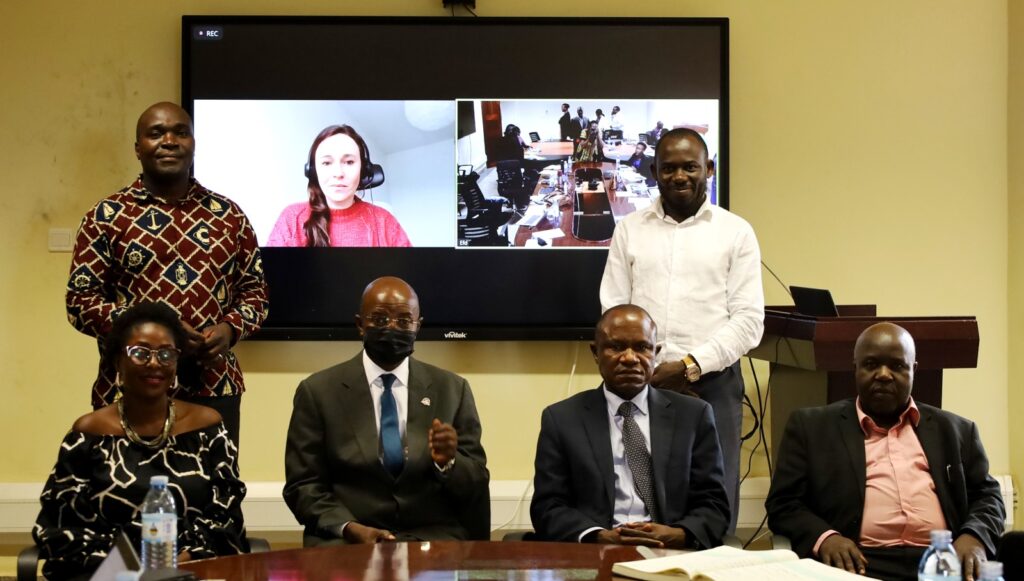
The program focuses on the use of environmental policy instruments, and specifically economic instruments such as environmental taxes, pollution fees, subsidies or subsidy reduction and other types of fiscal incentives for societal development in line with the Global Agenda 2030.
On 17th March 2022, EfD-Mak center organized a Training of Trainers workshop as the final activity for the pioneer IGE Cohort 2021 and a platform to share lessons learnt and what they have done in National Policy Reviews in the previous year with the new IGE cohort 2022.
The blended workshop held physically and online was graced by IGE program leader from the EfD Global Hub at the University of Gothenburg Sweden Prof. Anders Ekbom and the co-programme leader Emelie César. It was also attended by graduate students from Makerere.
Makerere University IGE Program Policy Engagement Specialist Peter Babyenda said the workshop was the last for the IGE fellows 2021 who had been taken through the IGE principles, policies and what to do to achieve the IGE goals.
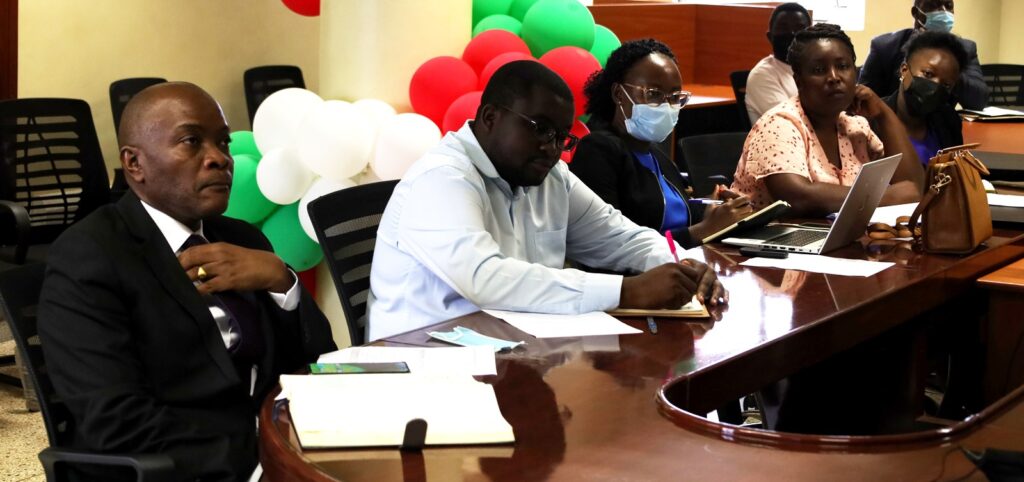
Babyenda said the pioneer fellows were trained online due to COVID-19. The program also held a grand workshop at Speke Resort Munyonyo in Uganda where all participating countries joined to present their national environment and natural resources-related policies for review.
“We also did a review of all existing IGE policies in Uganda and today our IGE fellows have been disseminating to us and the new fellows what they have learnt from forestry sector, urbanization, energy and the agricultural sector” he said.
The workshop inaugurating the new cohort 2022 was officially opened by the Principal, College of Business and Management Studies (CoBAMS), Assoc. Prof. Eria Hisali on 17th March 2022 at the EfD-Mak Conference room in the Central Teaching Facility Two at Makerere University.
Dr. Hisali congratulated the IGE Cohort 2021 upon their resilience to work in an environment which combines office work and training, expressing hope that they will put into practice everything they have learnt.
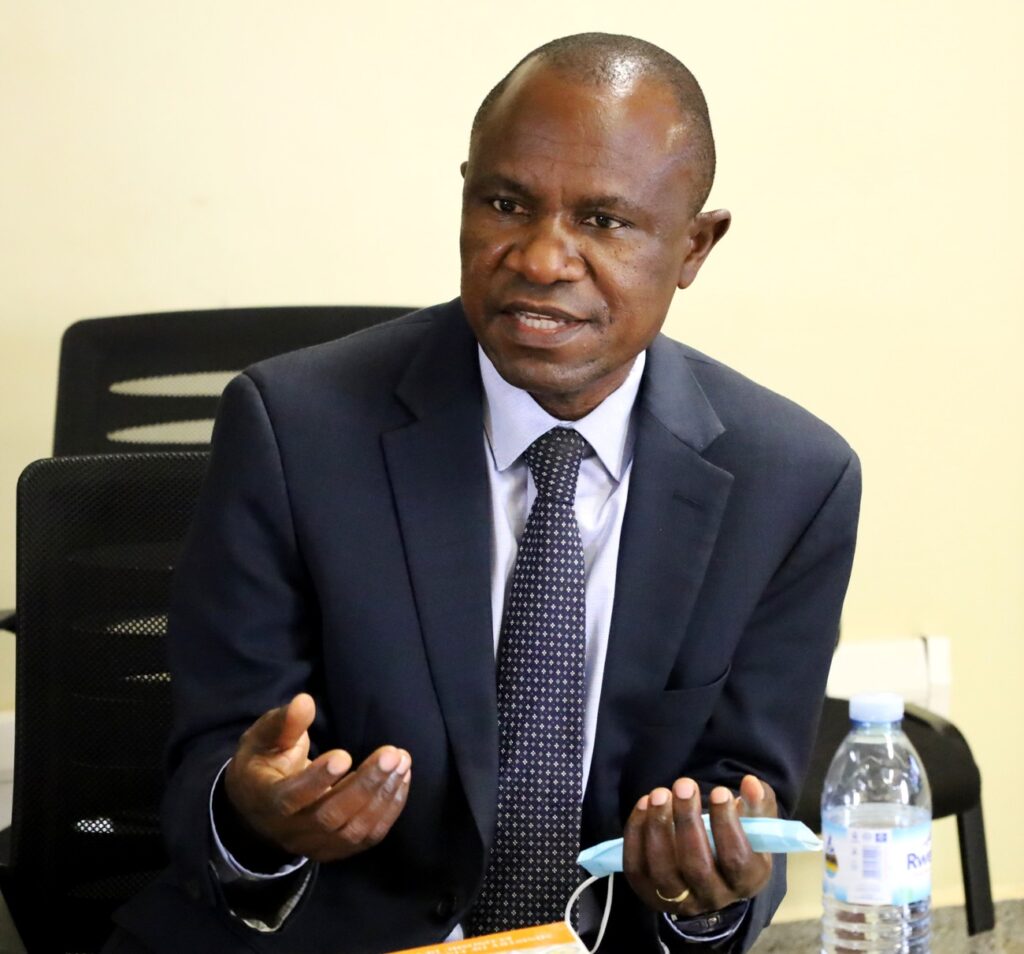
“We are still having a challenge in this country that the concept of Inclusive Green Economy and inclusive green growth generally still has a very limited audience. There are very many people in the private sector and government and elsewhere who have limited knowledge on what this inclusive green economy is”, Dr. Hisali said.
Hisali congratulated and challenged the IGE pioneers to integrate what they learnt into the workplace and implored them to support the university whenever called upon to give guest lectures and undertake joint research.
The Principal hailed the program facilitators for the good work done in capacity building even during the COVID-19 lockdown, and thanked Sida for the continued support to Makerere University programmes.
Dr. Hisali welcomed and congratulated the new IGE Cohort 2022 assuring them that they were in the right place. He highlighted a number of issues that the cohorts should be interested in answering as they embark on the journey.
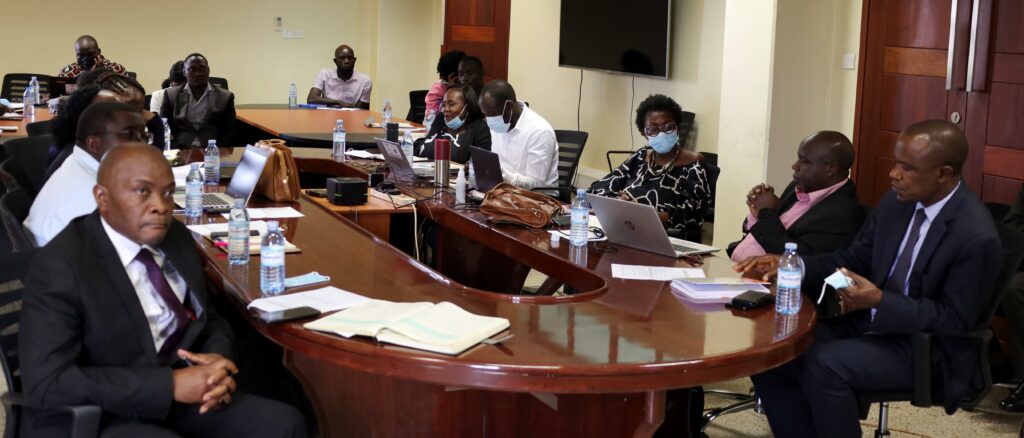
“Our growth of Uganda’s economy has been largely driven by unsustainable use of natural resources. What interventions then, are we going to put in place as a country to enhance productivity of our resources so that we see growth coming in from increased productivity and less on unsustainable use of natural resources”, Dr. Hisali asked.
The other challenge that IGE fellows ought to take note of according to Dr. Hisali is how to go about the income inequality and high population growth rates accompanied by the fact that many of the people are clustered around the poverty line with about 40-42% living on less than 1.9 dollars a day. These, he said, will intuitively resort to exploitation of natural resources.
Dr. Hisali also observed that Uganda has a number of IGE projects spread across the private and public sectors involving many individuals, but with very limited synergies because they are scattered and isolated.
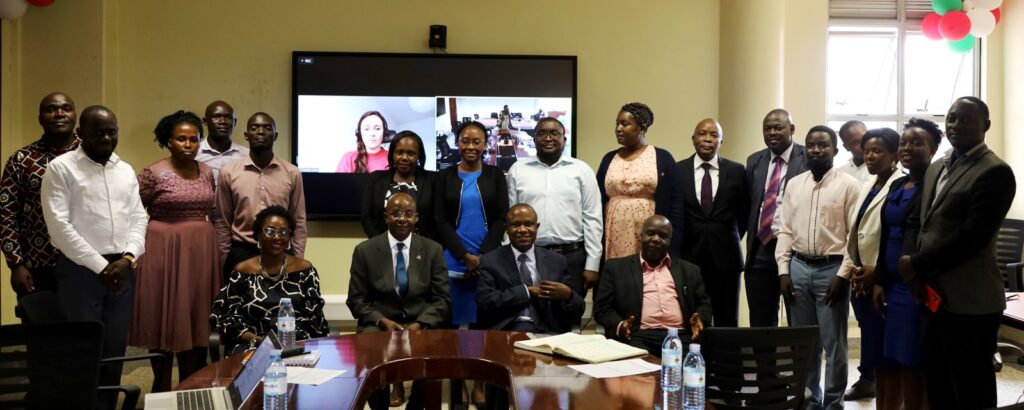
“The other challenge is that we are focused on pursuing a private sector led growth which in its self is not a problem, but in my own view, has a number of disadvantages .The challenge with respect to Inclusive Green Economy is that many private sector actors may not give enough attention to the issue of sustainable growth. They may be driven in the short term by the profit, motive to maximize the returns on their investment, and the situation is made worse because of the weak regulatory framework.” Hisali decried
Program objectives
Speaking online, the IGE Programme leader from University of Gothenburg, Prof. Anders Ekbom said the Inclusive Green Economy (IGE) in Practice is Capacity Development Programme for Senior Civil Servants and Policy makers.
Prof. Ekbom explained that besides strengthening research –policy interface, the IGE program is to strengthen countries’ capacity for transformation to an Inclusive Green Economy (IGE) – through increased knowledge and application of economic and environmental policy instruments, organizational change, and strengthened national systems for inclusive and sustainable economic development.
He further said the countries’ capacities are strengthened at three levels namely Individual, organizational and system level.
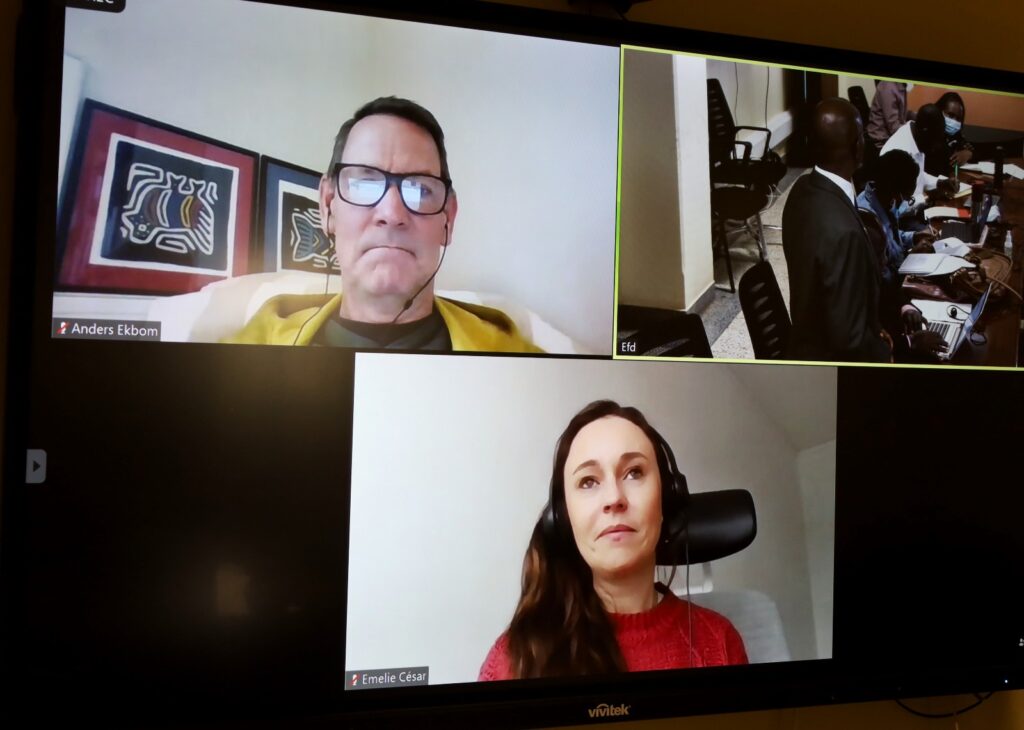
”At individual level, the objectives include increased understanding of IGE and the application of environmental economic instruments, increased knowledge of organizational changes and expanded international, regional and national networks.
At organisational level, the aim is increased capacity for IGE and application of economic instruments, increased priority on IGE and economic instruments and IGE projects and support for ongoing IGE work and processes.
And at system level, the program objectives include improved cooperation between organizations and sectors in the country and region, strengthened IGE system and transformations towards IGE and application of useful environment economic instruments”, Prof. Ekbom explained.
The Director EfD-Mak Centre Prof. Edward Bbaale commended the the centre staff and Makerere University Management for supporting and providing an environment that is conducive for the IGE program to thrive.
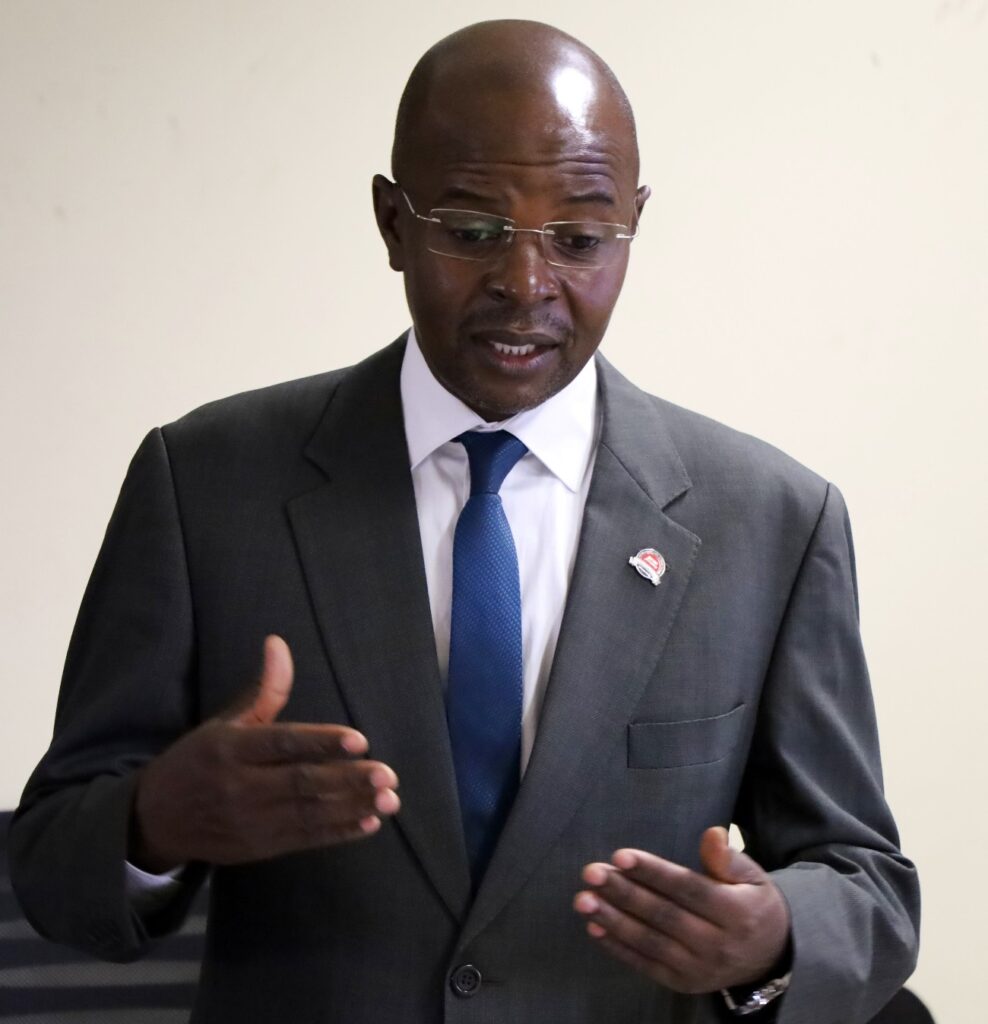
Prof. Bbaale welcomed the students, as well as IGE 2021 and 2022 cohorts to the workshop.
”It is an exciting opportunity having the IGE 2021 fellows building capacity of their fellow workers and even for ourselves on what they have done and learnt for the year on Inclusive Green Economy training for senior public servants. This is a great opportunity and moment”, he said.
Bbaale thanked all the stakeholders from different Ministries, Departments and Agencies for considering IGE program as a great opportunity and nominating the senior colleagues to participate in the training program.
The Director thanked the Global hub for organising the program and meeting on the mandate despite the COVID-19 challenges.
Bbaale extended gratitude to the Sida and the EfD Global hub for financing the program and expressed the centre’s commitment to deliver on her mandate.
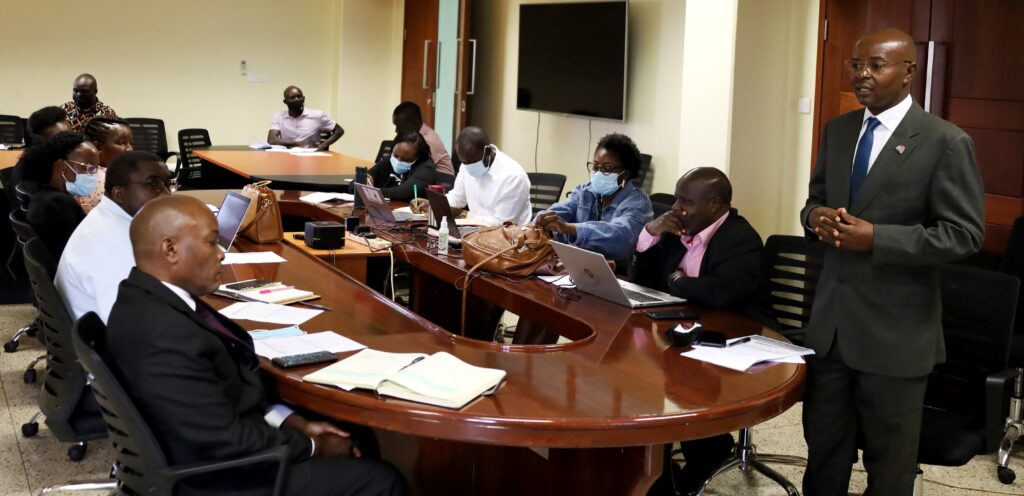
Participants speak out on the training
Aloo Steven doing Masters of Arts in Economics, Policy and Planning Makerere University said he learnt about how to incorporate issues of environment in development, and how to have a smart city.
” I wish this kind of training continues. I have seen the training is on the higher level and I wish it can be brought to the lower level to bring students to cause a mindset change among the young people on how to keep the environment green”.
Ronald Kagwa, a pioneer IGE fellow from the National Planning Authority (NPA) said, ”This is a very good way to begin a new program. The second lot of IGE fellows have learnt the lessons we picked from the second program, what they need to do and I think they have got a better understanding of the program, is to come up with policies relevant to combating the sustainable development challenges of the country, the need for partnerships and they should come up with policies that address the national objectives.”
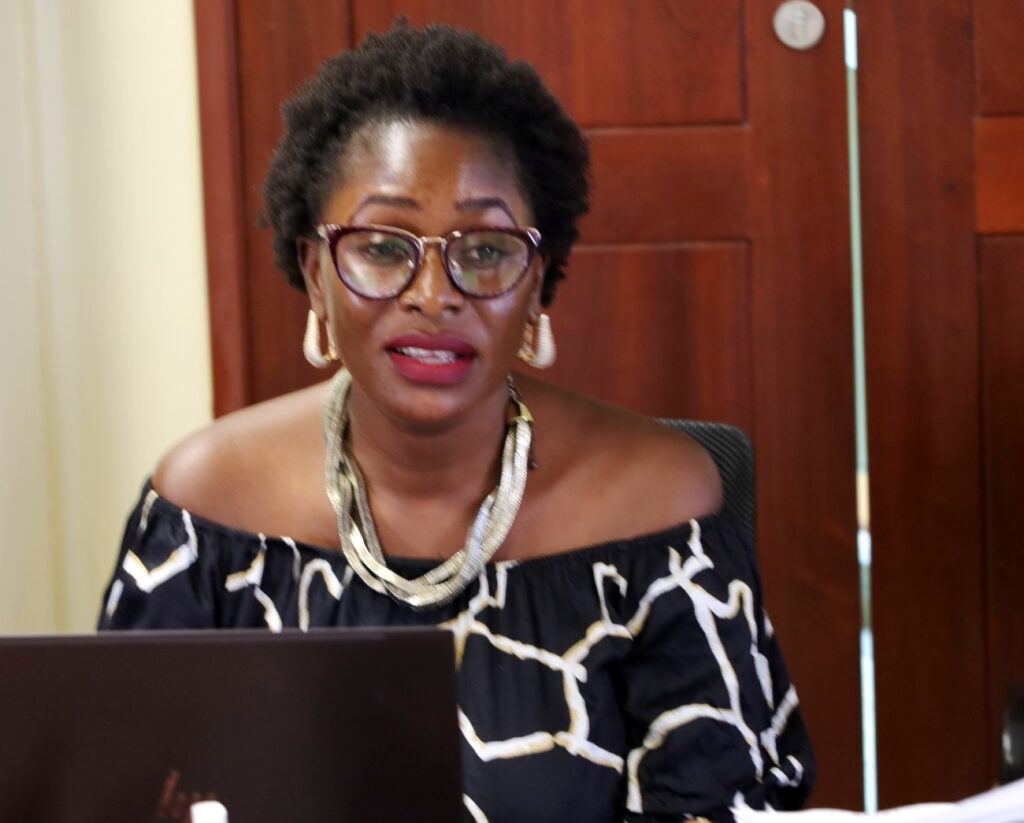
Racheal Nabasirye is an IGE Cohort 2022 Fellow and a planner in the Directorate of Policy, Research and Innovation, NPA. She said, ”The IGE workshop was very insightful. I learnt a lot about the environment, how we can make our economy green through the different sectors, agriculture, transport and I think we need to push it to the private sector as one of the major players as well as strengthen our institutions to further this course”.
Robert Chuchu, the Ag.Director Strategy at Kampala Capital City Authority and also an IGE Cohort 2022 Fellow said he found the training very interesting, engaging and worthwhile.
’The IGE programme has a lot to contribute to improve our country and as we bring together experts and building skills and capacities of the different civil servants, policy makers and other players in the development of our city, it is critical as we deliberate on issues that concern the environment and the green economy. Green economy is the future in every aspect because it is crosscutting in all our lives and we must be able to appreciate these principles and how to promote them”.
Jane Anyango, EfD-Mak Centre
You may like
-
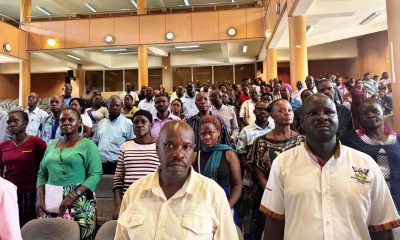

Support Staff Trained to Promote Safety of Students and Stakeholders
-
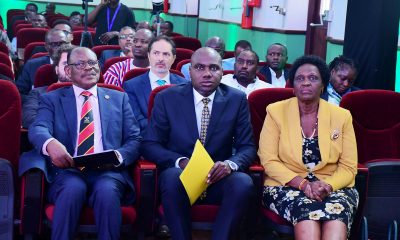

First African Symposium underscores the role of the Centre of Excellence for Africa Climate-Sensitive Macroeconomic Modelling
-
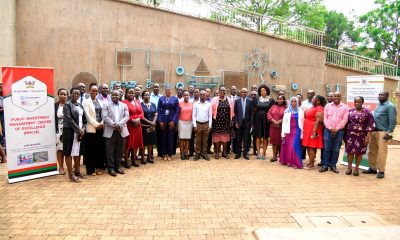

Makerere Hosts Second Cohort of MoKCC&MA Procurement Officers for E&S Safeguards Training
-
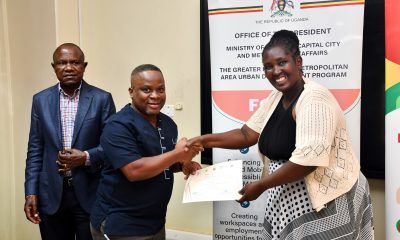

PIM Centre Awards Certificates to MoKCC&MA Officers after Safeguards Training
-


Call for Applications: Short Course in Molecular Diagnostics March 2026
-
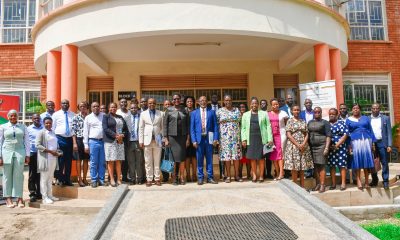

VC Opens Training for MoKCC Officials on Safeguards in Procurement
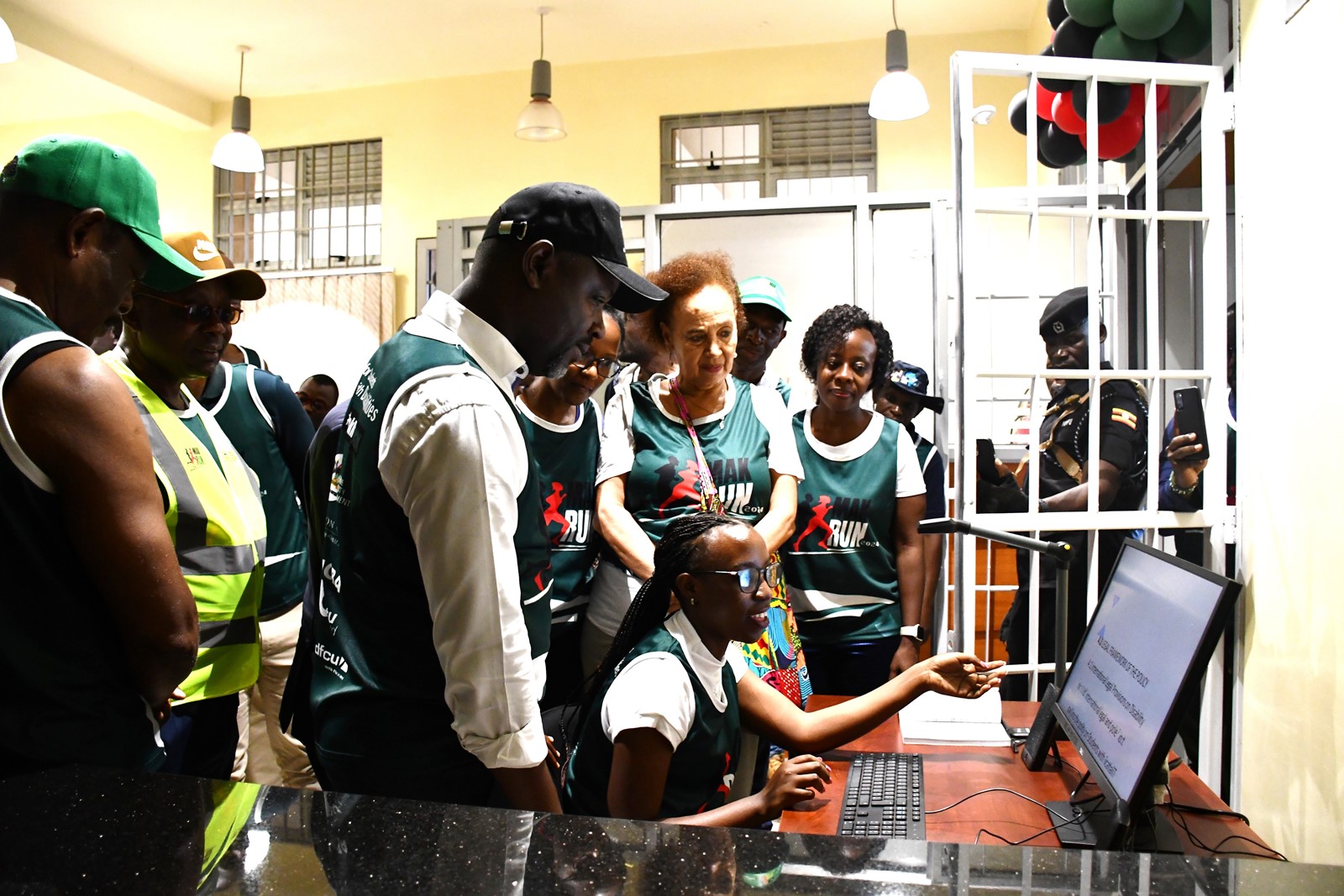
Students with disabilities at Makerere University have been requested to stop seeking for special attention and instead look for solutions and opportunities for personal growth.
This was during a mental wellness, inclusion and safeguarding session organized by the Dean of Students office and the Mastercard Foundation Scholars Program at Makerere University.
Addressing students on mental health and disability inclusion, Mr. Marvin Ggaliwango, a lecturer at the College of Computing and Information Sciences (CoCIS), noted that if the students stop complaining, they will become empowered to take charge of their own development, build resilience and engage confidently in both academic and social environments.
“Turn your lived experiences into tools for innovation. Stop complaining and start creating solutions for yourselves. You are the one living this life, and that gives you the authority to be an expert. When you develop a solution, it doesn’t just benefit you, it helps others too, by removing barriers,” Mr. Marvin Ggaliwango, said.
He encouraged students to see themselves not as victims of circumstance, but as active participants and co-creators of the inclusive environment they wish to experience.
“Learn how to communicate effectively and humbly. If you have a problem, express yourself clearly. Do not isolate yourself or feel resentful. You are not defined by disability, you may face disadvantages, but you still have ability,” he encouraged.
Throughout the session, students listened attentively as he emphasized the importance of self-awareness and personal responsibility, urging them to understand their strengths, acknowledge their limitations and take deliberate steps toward personal growth while contributing positively to the University community.
“We must enhance and ensure that our mental health is number one. Always choose yourself first. Choose what makes you happy and protect your peace. If you are at peace with yourself, your academics will improve. There is a strong link between mental wellness and academic success,” Mr. Ggaliwango, noted.
In his speech, Mr. Musa Mwambu, the Disability Inclusion Advisor at Light for the World Uganda, called upon the students with disabilities to enhance and ensure that their mental health is prioritized.
“As students living with disabilities, sometimes you over expect, because you have a disability you should be given, listened to and when people do not listen to you, you attribute it to your disability, get it from me, even those without disabilities are not listened too. Things are not happening to you because of your disability it is because of the world we live in. Everything that happens to you can happen to others,” Mr Mwambu, noted.
“Have fun with your life. Make yourself happy and be smart. Present yourself in public confidently wherever you go. The way you carry yourself can improve your mental health and how others perceive you,” Mr. Mwambu said.
He reminded the students that gaining admission to Makerere is itself a milestone.
“There are many people without disabilities who have never stepped at Makerere University. Find something that empowers you and hold on to it. You may have a physical impairment, but if you are brilliant in class, you can lead discussions and inspire others,” he added.

During the session, Dr. Rodney Rugyema, the Acting Principal Warden, welcomed the students back from the long holiday. He assured them that the University is committed to their safety and well-being while on campus.
Dr. Rugyema emphasized that the University has systems in place to protect students, both physically and psychologically and encouraged them to report any concerns promptly.
“When you are at the University, you are not on your own, we are always here for you. For us to engage you on mental wellness and inclusion, we want you to be in the right state of mind, whole and complete,” Dr Rugyema, said.
He added: “We are here to empower you and we are calling upon you not be a risk for yourself and always be able to detect risks that are likely to affect your mental health and works towards avoiding them and reporting them to ensure that the University manages them before they escalate into real harm whose impact is more serious than you can think,”
During the session, Ms. Diane Nabikolo Osiru highlighted the University’s broader commitment to safeguarding.
Safeguarding at Makerere University refers to measures put in place to promote safety and wellness of all students, staffs and other stakeholders.
“At Makerere University, safety is not a luxury for few. but it is a right for every student. As the semesters begins, we are urging you to learn how to identify signs of harm or abuses and report them to the appropriate safeguarding contact points,” Ms Nabikolo, said.
For support in case of any harm or abuse, International and Refugee Students, can access support through the Advancement and International Office, while Students with Disabilities, can utilize the Disability Support Center. Those with personal and emotional challenges, can visit the Counselling and Guidance Centre.
In his speech, Dr Joab Agaba, a Lecturer in the College of Computing and Information Sciences, guided students how to report risks and incidences to the MakSafeSpace, the e-reporting platform complimenting the other University traditional reporting channels.
Mr. Henry Nsubuga, the Manager of the Counselling and Guidance Center, shared practical strategies for coping with stress effectively including time management, setting realistic goals, seeking support from peers or counsellors.
Students speak out
Shanitah Nahamya, 2nd year student of the Bachelor of Adult and Community Education
“I have learned how to respectfully and appropriately engage with students with disabilities. In the past, I often felt pity when I encountered them, but now I understand that what they need is not pity, it is respect, support, and equal opportunity.”
Guo Dorothy Geri, 1st year student of the Bachelor of Commerce
“I have learnt how to use inclusive language. Before offering help to a student with a disability, I will first ask them, because not all the time do they need our help. You might think someone wants to be helped to cross the road, yet they are waiting for someone.”
Valentines Doris Aduka, 1st Year student of the Bachelor of Biomedical Science
“I have been calling students with disabilities special names, thinking it was kind. But I have learned that they do not want to be treated differently or labeled in a special way. What they value most is being treated like everyone else, with respect, dignity, and fairness.”
General
Strengthening Global Partnerships to Advance Research, Innovation, and Graduate Training: Makerere University Hosts Delegation from the University of Warwick
Published
3 days agoon
February 19, 2026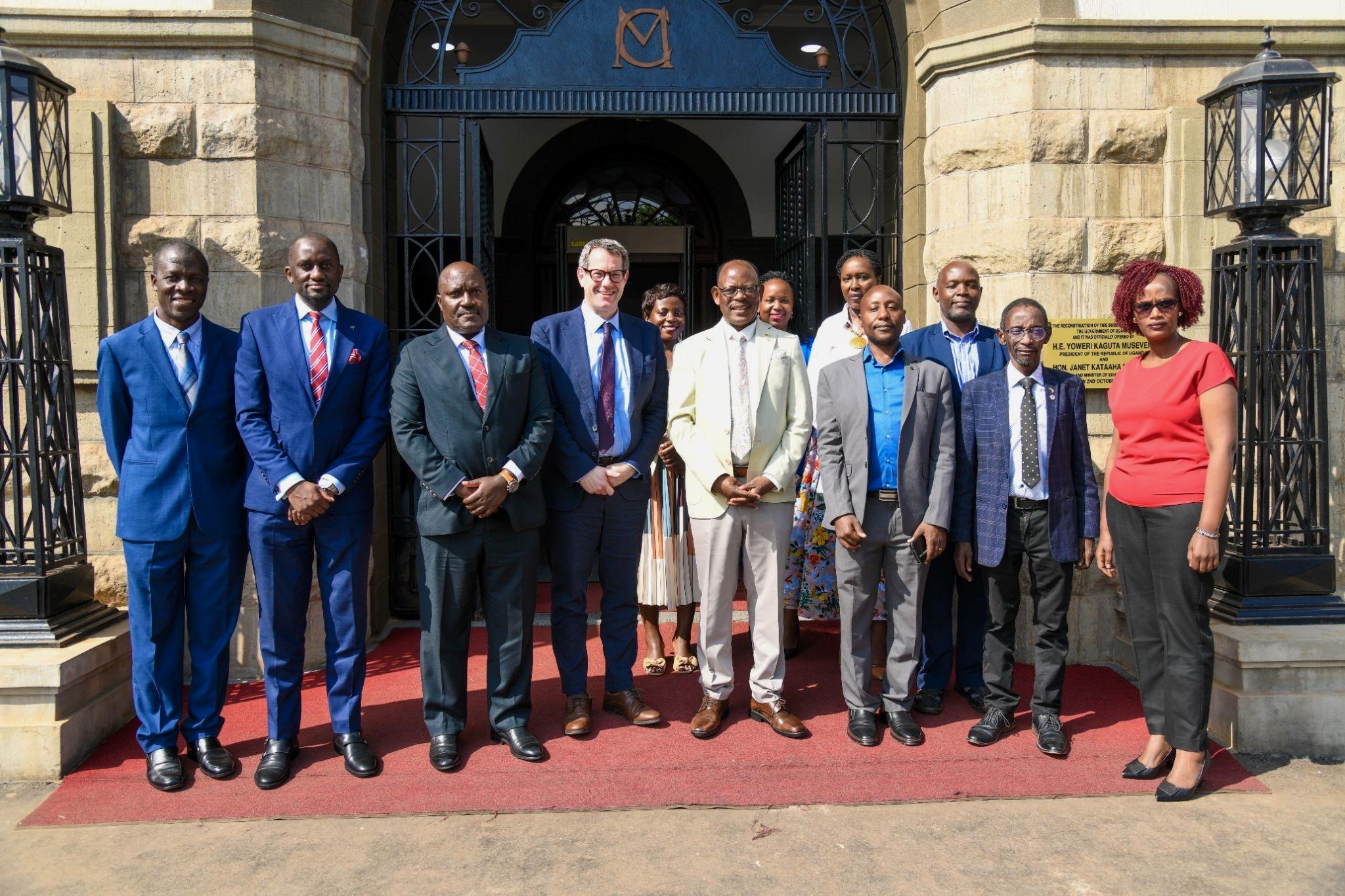
Makerere University continues to deepen its global engagement agenda through strategic partnerships that enhance research, innovation, and graduate training. On Friday, 13th February, 2025, during a recent engagement with a delegation from the University of Warwick (UK), university leaders, researchers, and administrators explored potential collaborations to address pressing development challenges and strengthen institutional capacity.
Expanding Collaboration in Research and Innovation
Welcoming the delegation, Prof. Fred Masagazi-Masaazi, Chairperson of the Makerere University Research and Innovations Fund (Mak-RIF) Grants Management Committee, emphasized the growing dialogue between Makerere University and the University of Warwick. He noted that ongoing discussions are focused on resource mobilization to support research and innovation, as well as building sustainable academic exchanges for both staff and students.
Dr. Roy Mayega, Mak-RIF Coordinator, together with Mrs. Phoebe Lutaaya Kamya, Deputy Coordinator, and members of the Mak-RIF team, highlighted the Fund’s role in catalyzing collaborative research and strengthening partnerships that translate research into societal impact.
Mr. Simon Kizito, Deputy University Secretary, outlined key areas identified for collaboration, including joint research and innovation initiatives, benchmarking visits across disciplines such as law, science, and ICT, and student exchanges designed to strengthen applied research skills. He also pointed to opportunities for training Makerere staff in specialized areas such as tropical diseases and innovation ecosystems, drawing lessons from Warwick’s strong linkages with industry partners located within its campus.
Makerere’s Strategic Priorities and Global Role
In his remarks, the Vice Chancellor underscored the longstanding relationship between Makerere University and the University of Warwick, dating back to the early 1980s, initially through staff training and more recently through collaborative research.
He highlighted Makerere’s historic contribution to leadership development across Africa and beyond, and the University’s continued growth following faculty rebuilding efforts in the 1980s, which have strengthened its research capacity. Today, Makerere has over 1,300 academic staff, more than 1,000 of whom hold PhDs, positioning the institution to play a leading role in knowledge production.
The Vice Chancellor also outlined major thematic areas where partnerships are critical:
- Climate change and food security: Researchers at the College of Agricultural and Environmental Sciences (CAES) are developing drought-resistant and high-yield seed varieties to address changing weather patterns and food insecurity.
- Public health and infectious diseases: Uganda faces frequent outbreaks of diseases such as Ebola and Marburg, and Makerere has built strong capacity in outbreak response and tropical medicine. The University’s medical school and the Infectious Diseases Institute (IDI) continue to play a pivotal role in research and treatment.
- Peace and conflict studies: Through initiatives such as the Rotary Peace Centre, Makerere contributes to training global leaders in conflict resolution.
- Climate-sensitive macroeconomic modelling: Makerere recently hosted a conference in collaboration with the Ministry of Finance, Planning and Economic Development to advocate for climate-responsive macroeconomic modelling and to plan for the establishment of a Centre of Excellence in this field.
- Innovation and technology: The University’s innovation ecosystem has produced notable outputs, including Africa’s first electric vehicle and ongoing work to expand incubation facilities to enable students to graduate with viable enterprises.
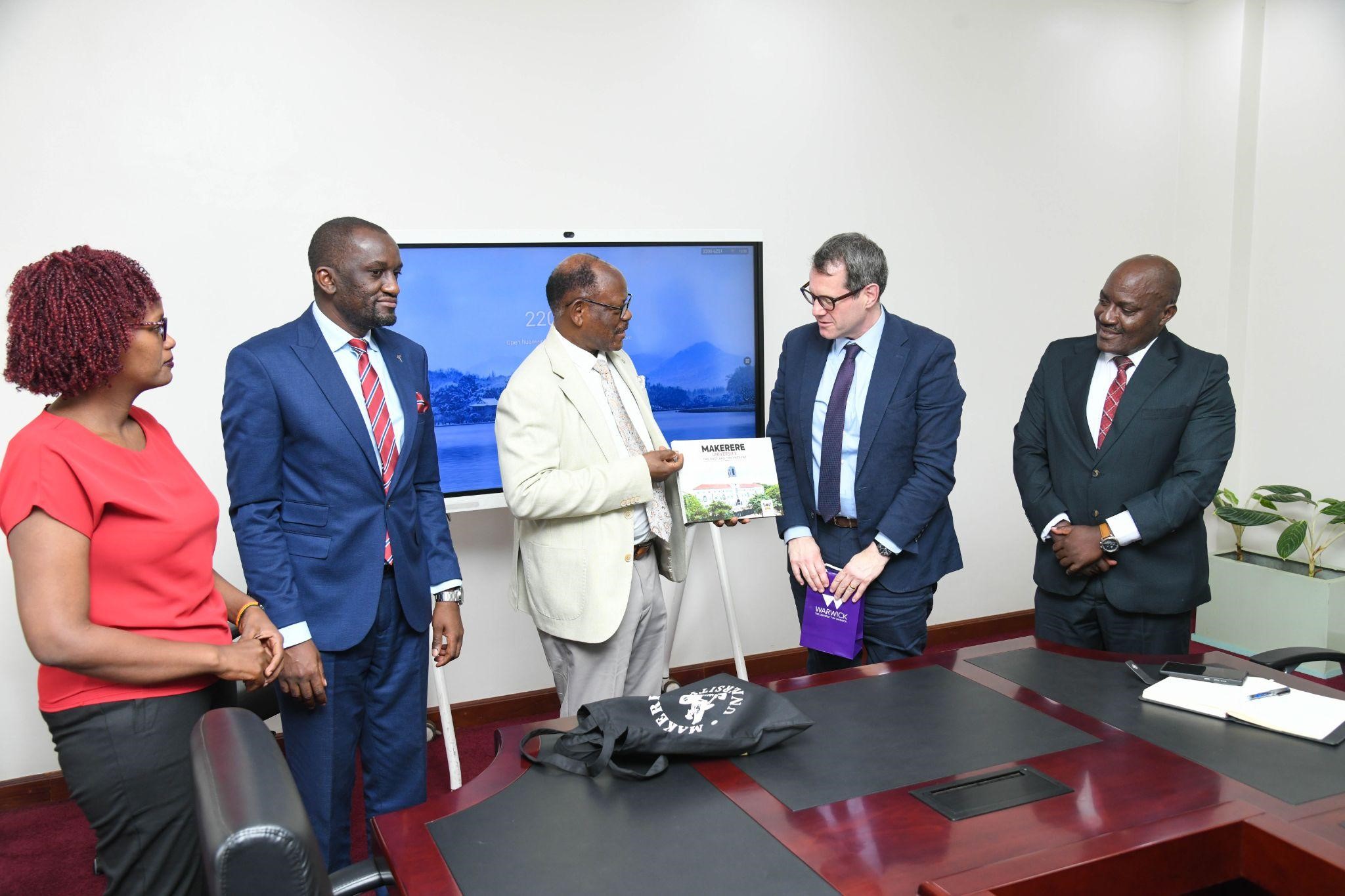
The Vice Chancellor emphasized that addressing youth unemployment remains a central priority, noting that innovation, entrepreneurship, and graduate training are essential to building stable societies.
He further stressed the importance of expanding graduate education. Africa currently produces a small proportion of global research output, and increasing PhD and Master’s training supported by international partnerships remains critical to accelerating knowledge production and development outcomes.
Internationalization and Shared Learning
Speaking on behalf of the University of Warwick, Professor Daniel Branch, Deputy Vice Chancellor, reflected on Warwick’s own institutional journey, noting that its growth has been driven by a strong focus on internationalization, innovation, and research. He expressed Warwick’s commitment to building productive partnerships with African universities, including Makerere, to advance joint research, training, and innovation.
Professor Branch also highlighted the importance of university-industry linkages, citing examples such as collaborations with major manufacturing firms that provide practical training opportunities and inform curriculum development.
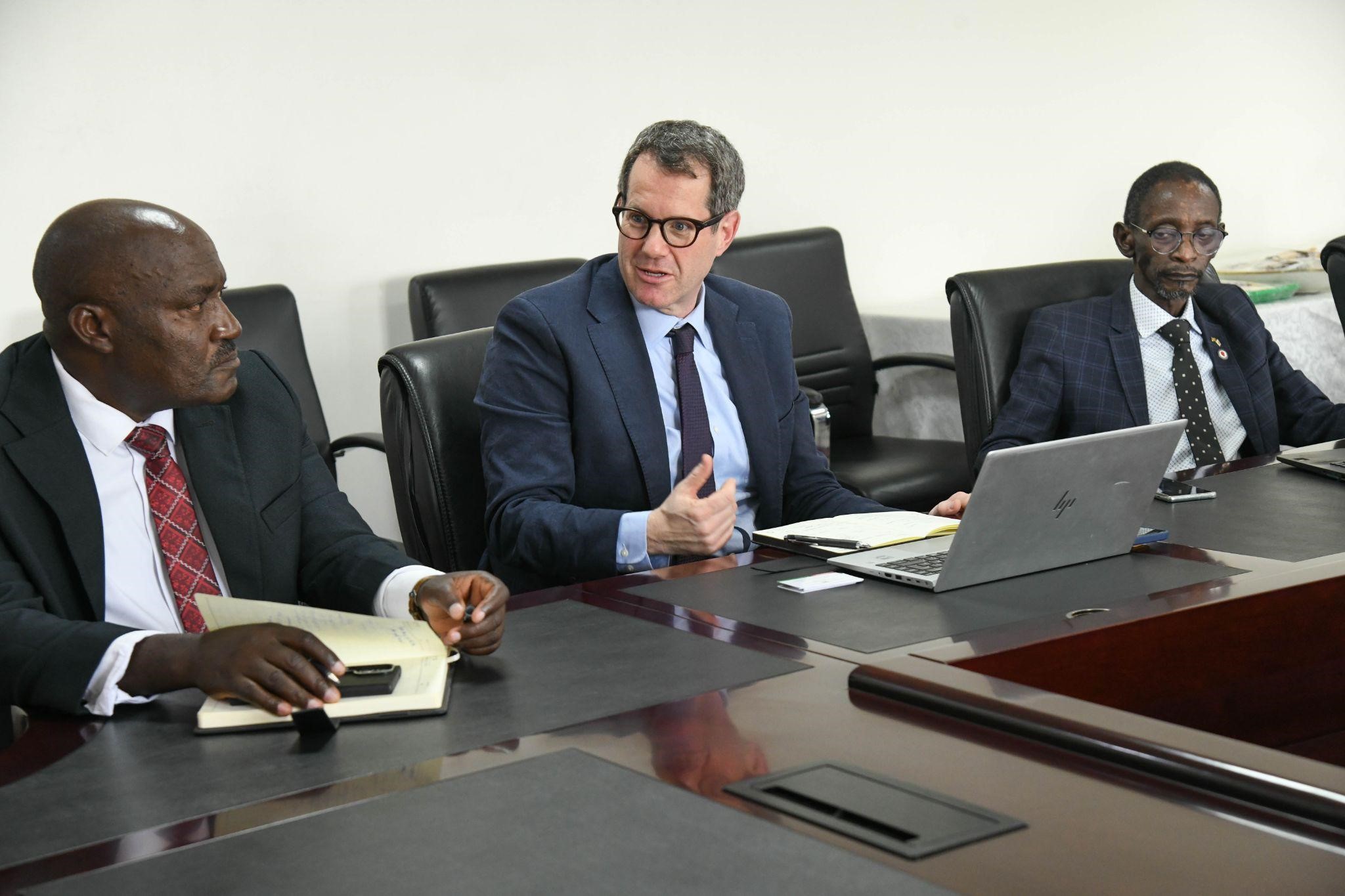
Showcasing Research and Innovation at CEDAT
A second session of the engagement was held at the College of Engineering, Design, Art and Technology (CEDAT), where academic leaders and researchers presented ongoing work across multiple disciplines.
Presentations included:
- Development of a solar water pump through reverse engineering (Dr. Edmund Tumusiime)
- Crane Cloud, a locally developed cloud-computing platform (team from the College of Computing and Information Sciences)
- Profiling gaseous emissions associated with burnt bricks (Dr. Nathan)
- Integration of centralized grid and decentralized renewable off-grid systems: a techno-economic analysis (Dr. Abubaker Waswa)
- Innovation and digitalization pathways for affordable housing in Sub-Saharan Africa (Prof. Stephen Mukiibi)
The session was attended by CEDAT leadership, including the Principal, Prof. Moses Musinguzi, as well as deans and heads of department from engineering, built environment, and industrial and fine arts. The day’s activities were concluded with a tour of Makerere University’s Innovation Hub.
The engagement reaffirmed Makerere University’s commitment to building strong, mutually beneficial partnerships that accelerate research, strengthen graduate training, and drive innovation. As global challenges such as climate change, public health threats, and youth unemployment intensify, collaboration among universities remains essential to developing scalable, evidence-based solutions.
Through partnerships such as the one Makerere University and the University of Warwick hope to activate through a Memorandum of Understanding in the near future, Makerere continues to position itself as a leading research-intensive university dedicated to transforming society through knowledge, innovation, and global cooperation.
Caroline Kainomugisha is the Communications Officer, Advancement Office, Makerere University.
General
Mastercard Foundation Scholars embrace and honour their rich cultural diversity
Published
4 days agoon
February 18, 2026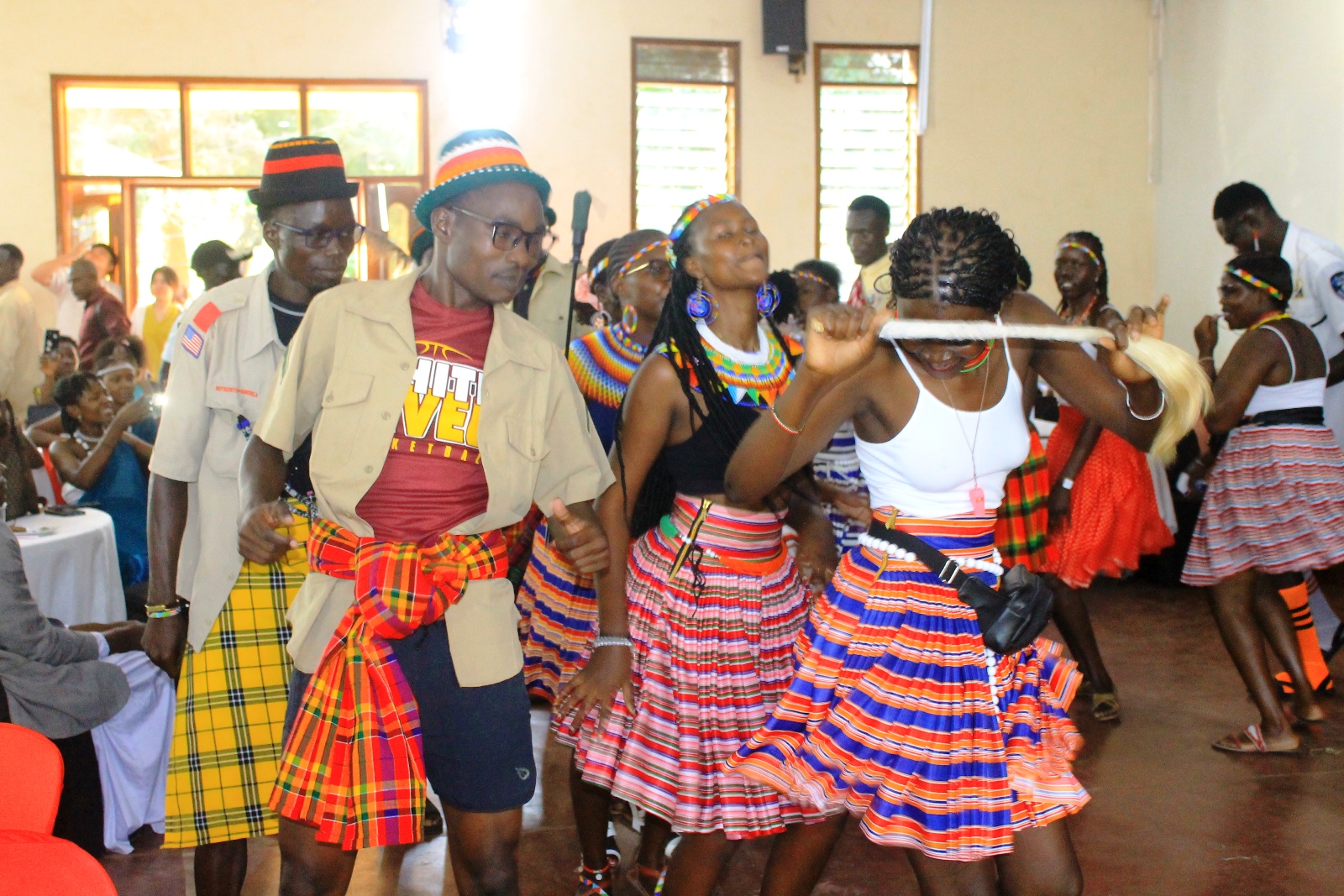
On the evening of Friday, 13th February 2026, the Scholars of Mastercard Foundation embraced the new semester with enthusiasm and celebration, showcasing their rich cultural diversity at the annual cultural dinner. This event not only fostered a sense of community but also highlighted the importance of cultural exchange and understanding among the scholars. The purpose of the cultural dinner is to foster unity in diversity within the Scholars community and to enable young people to appreciate and respect each other’s cultural differences.
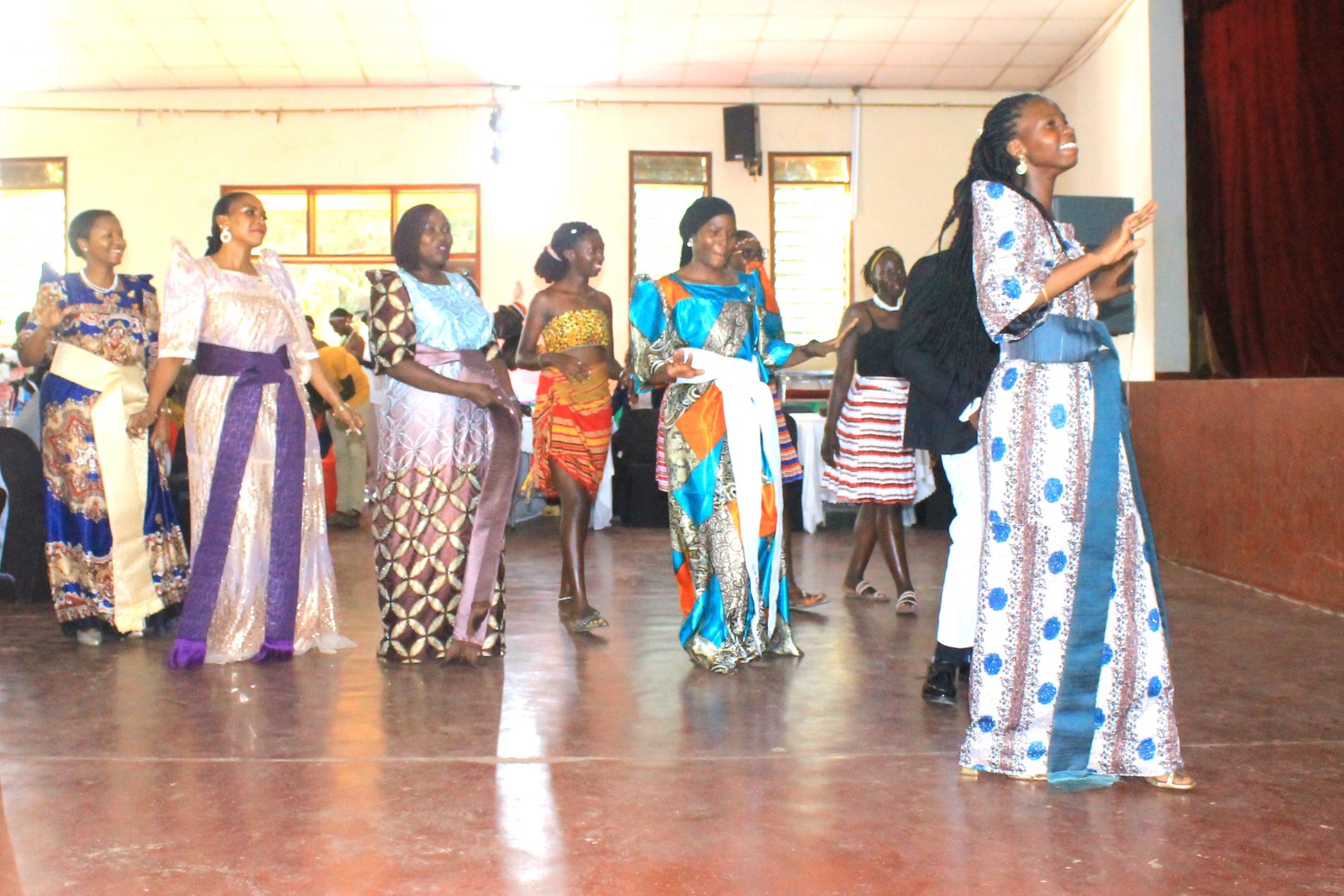
The Mastercard Foundation Scholars community at Makerere University is a vibrant tapestry of countries, cultures, and backgrounds. In recognition of this richness, the Program team has proposed organising an annual cultural dinner to kick off each new semester. This event aims to achieve several important objectives:
- Promote mutual understanding and cross-cultural appreciation among Scholars.
- Celebrate and highlight the unique cultural identities within our community.
- Encourage confidence and creativity through a dynamic talent showcase.
- Foster a sense of unity and excitement as we embark on the new academic semester together.
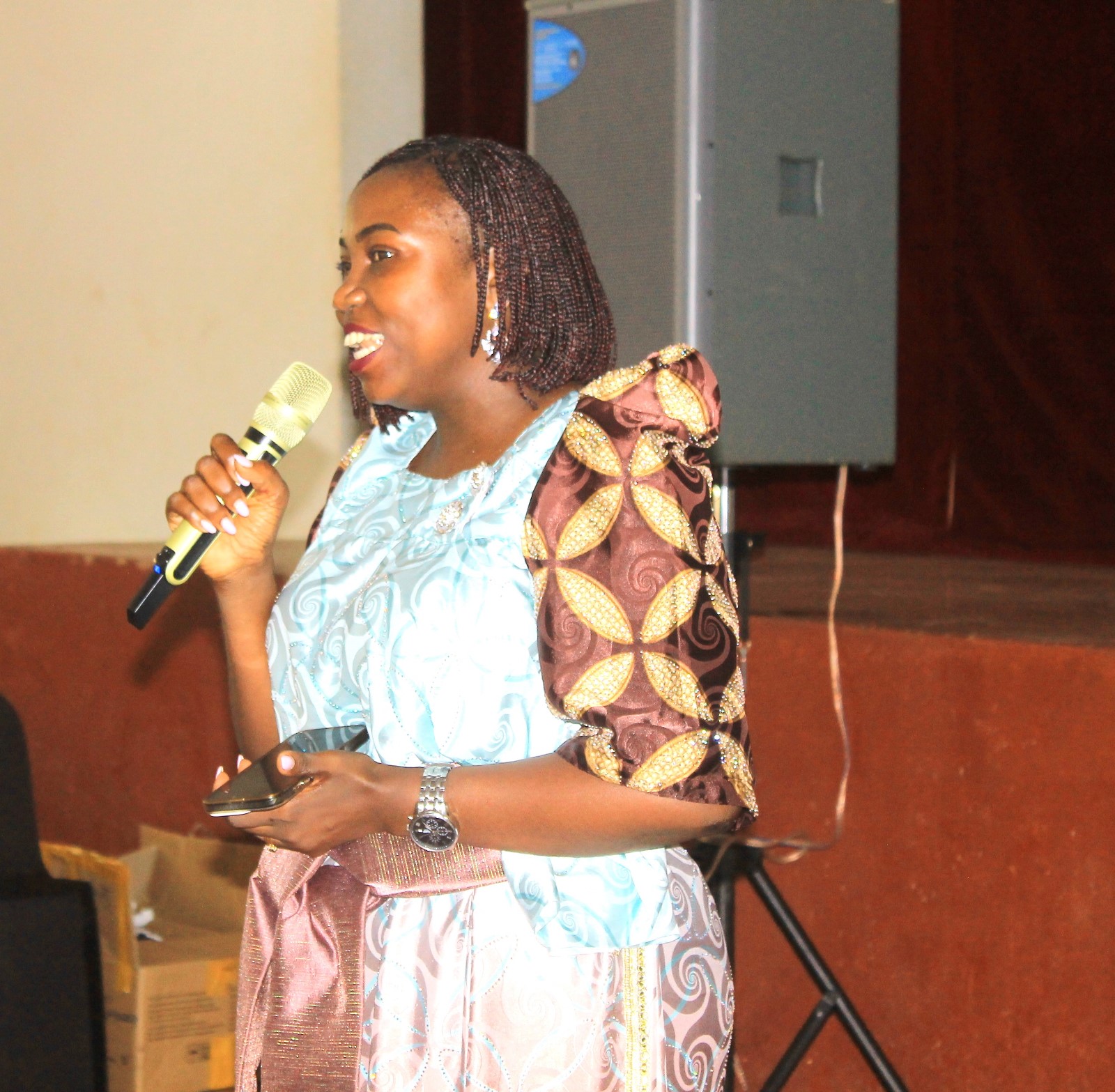
During the event, the Scholars proudly showcased their diverse cultures through a vibrant display of traditional attire, engaging dances, delectable dishes, and meaningful expressions in their native languages. The event showcased a rich tapestry of cultures, including the Baganda from Central Uganda; the Banyankore, Bakiga, Batooro, and Banyoro from Western Uganda; the Acholi from the North; the Karamojong from the Northeast; and the Basoga and Bagisu from the Eastern region, among many other indigenous tribes in Uganda. Additionally, attendees enjoyed cultural performances from South Sudan, Rwanda, and the Democratic Republic of Congo, celebrating the unique heritage of each community.
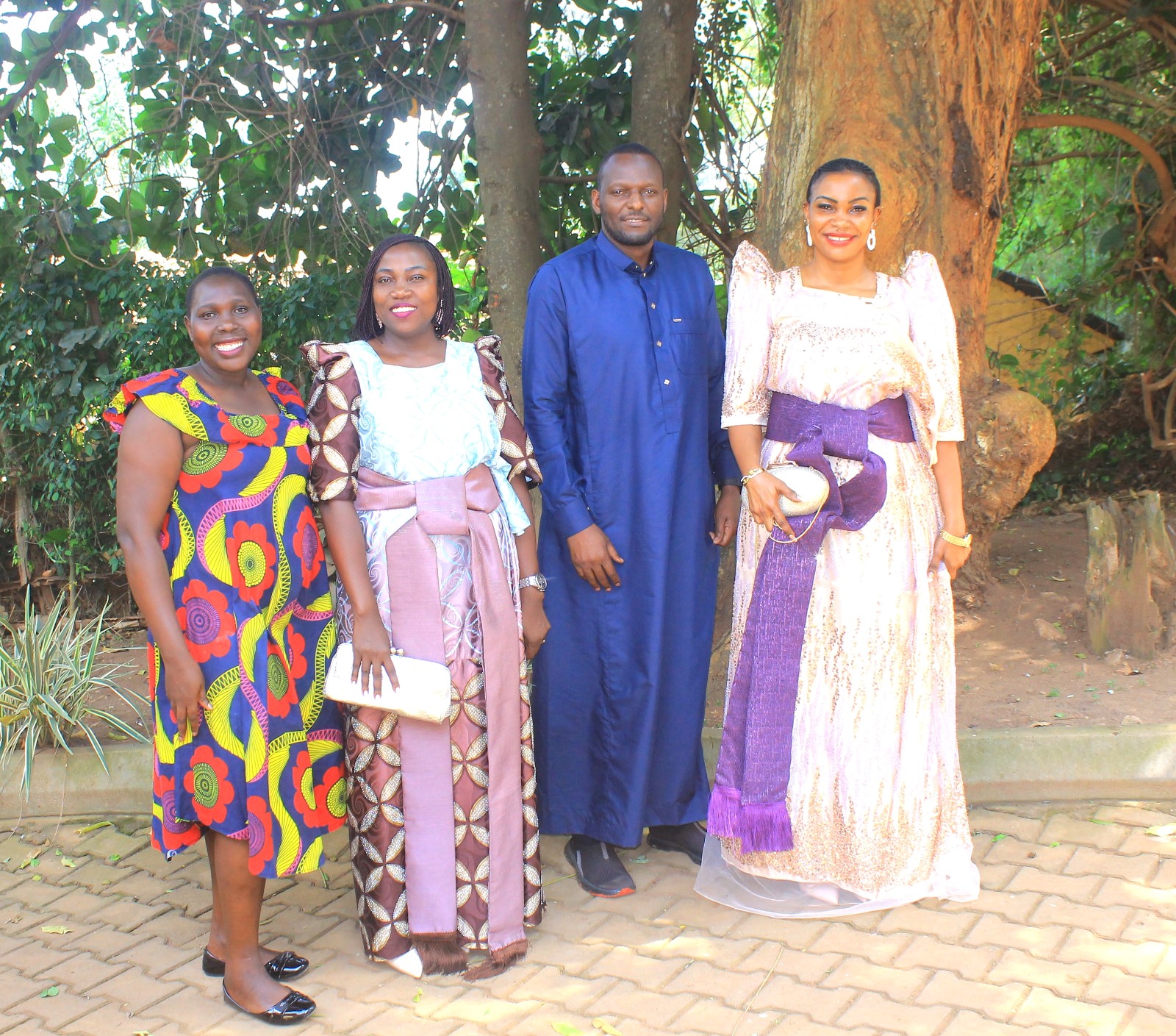
The event also featured a vibrant showcase of cultural attire, accompanied by traditional songs and dances. Attendees enjoyed cultural dress modelling, engaging performances, art displays, and interactive quizzes, culminating in exciting prizes awarded to outstanding performers. This diverse array of activities contributed to a rich celebration of creativity and cultural exchange.
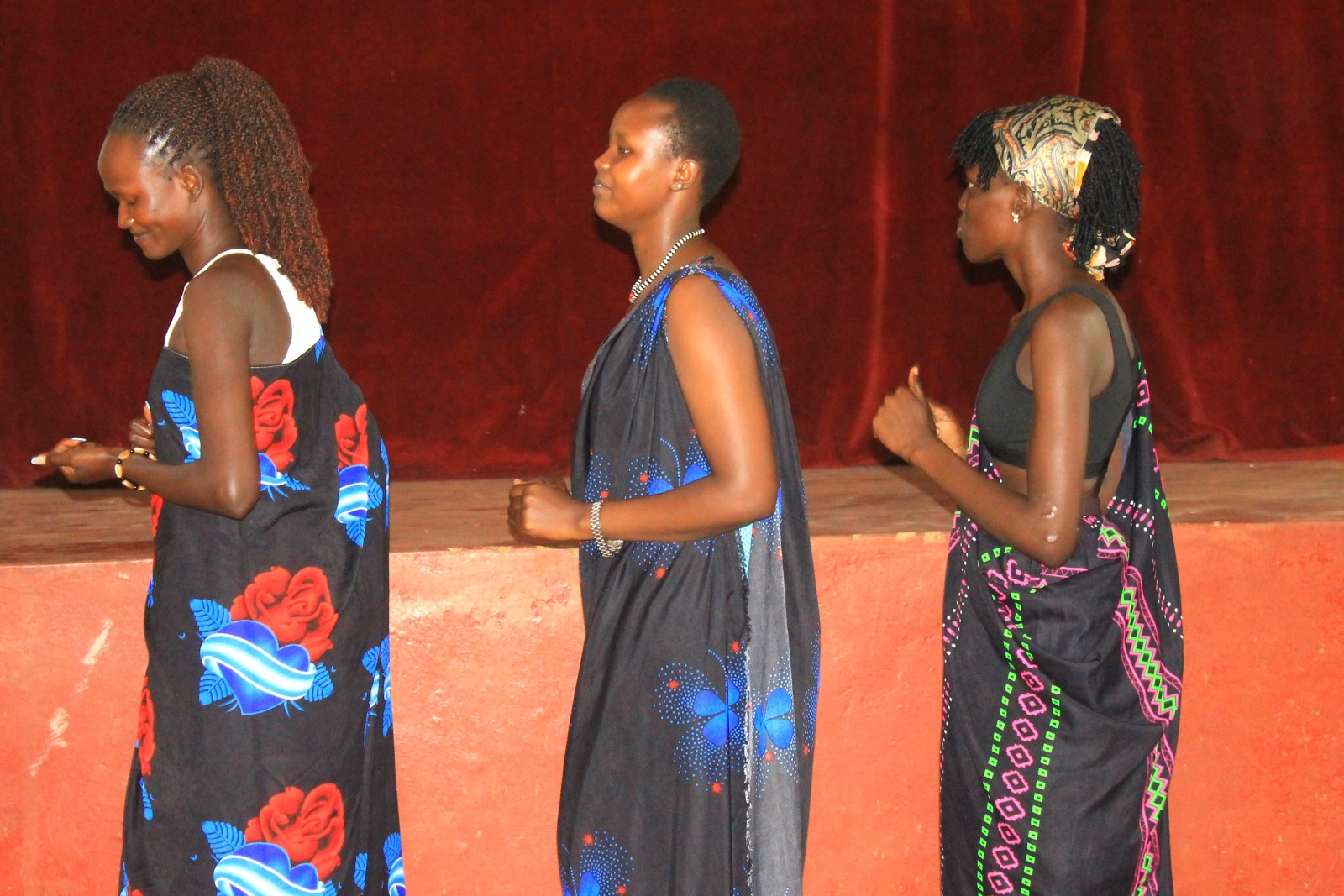
The Mastercard Foundation Scholars Program at Makerere University is committed to fostering holistic development, community building, and leadership among Scholars. At the start of each semester, the Program Team hosts a cultural dinner to reconnect the Scholars community, share key Program updates, and create an inclusive space to strengthen belonging and engagement. The cultural dinner is a critical platform for raising awareness of the need to appreciate and respect cultural diversity.
Bernard Buteera is the Principal Communications Officer for the Mastercard Foundation Scholars Program at Makerere University.
More Photos from the Dinner
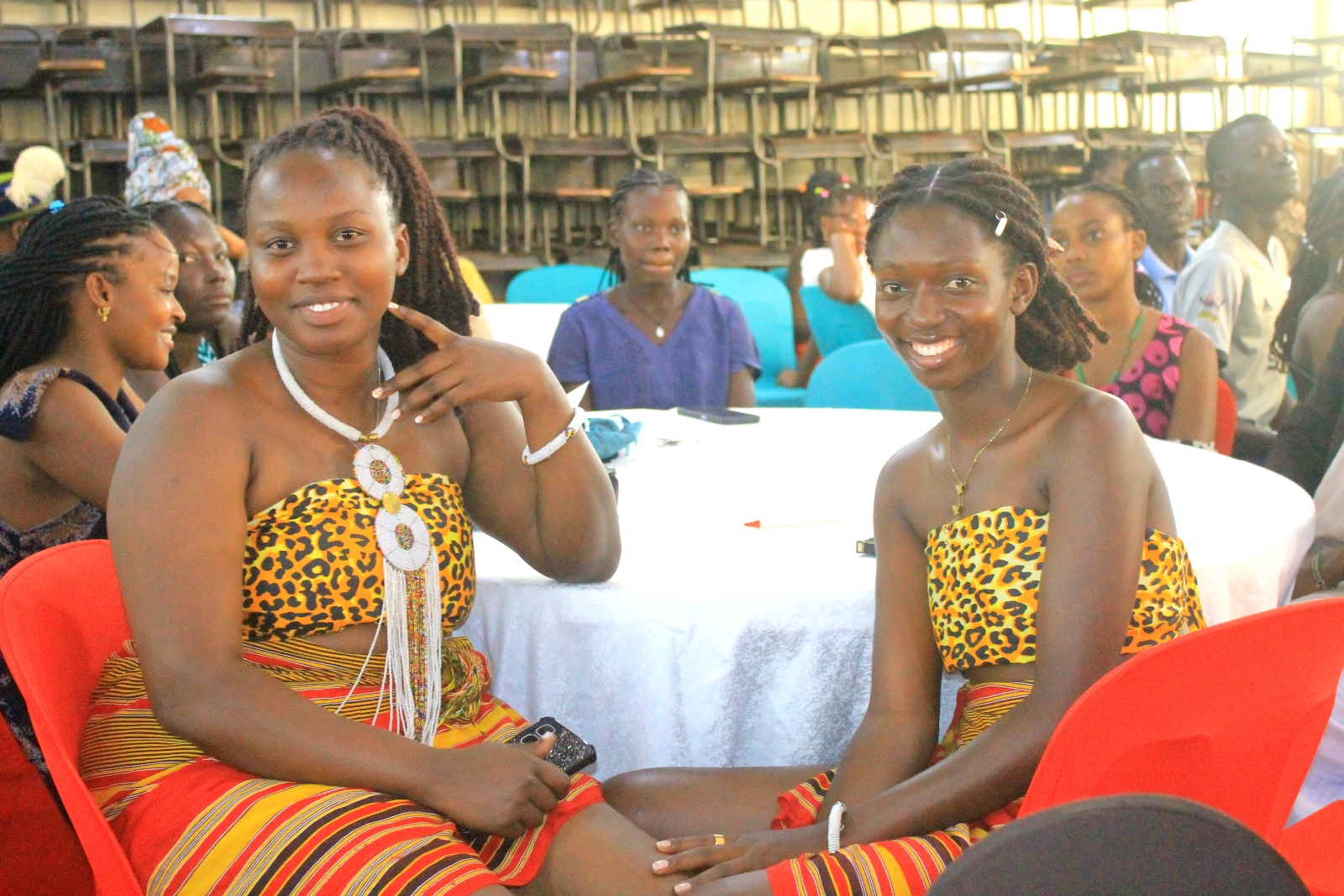
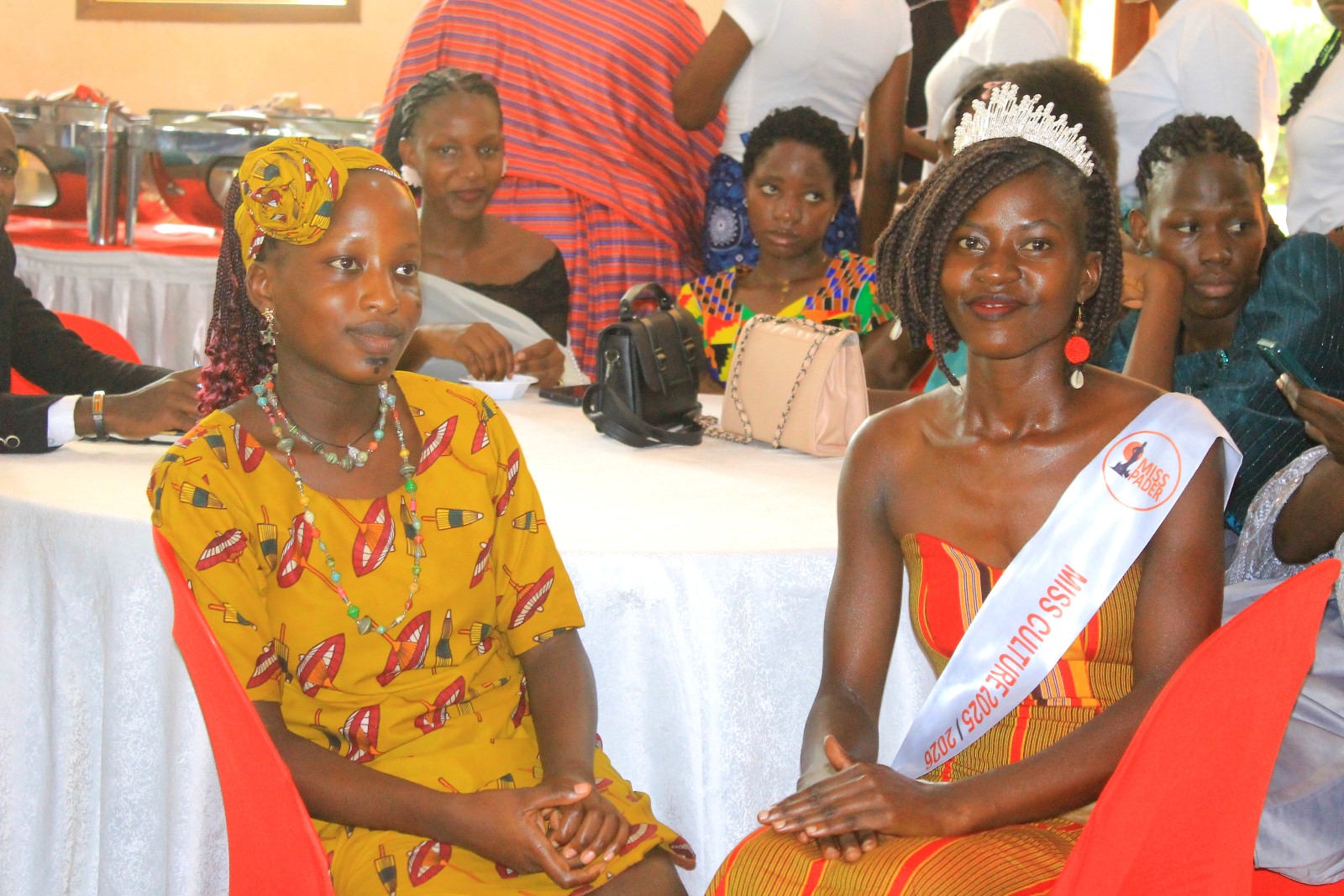
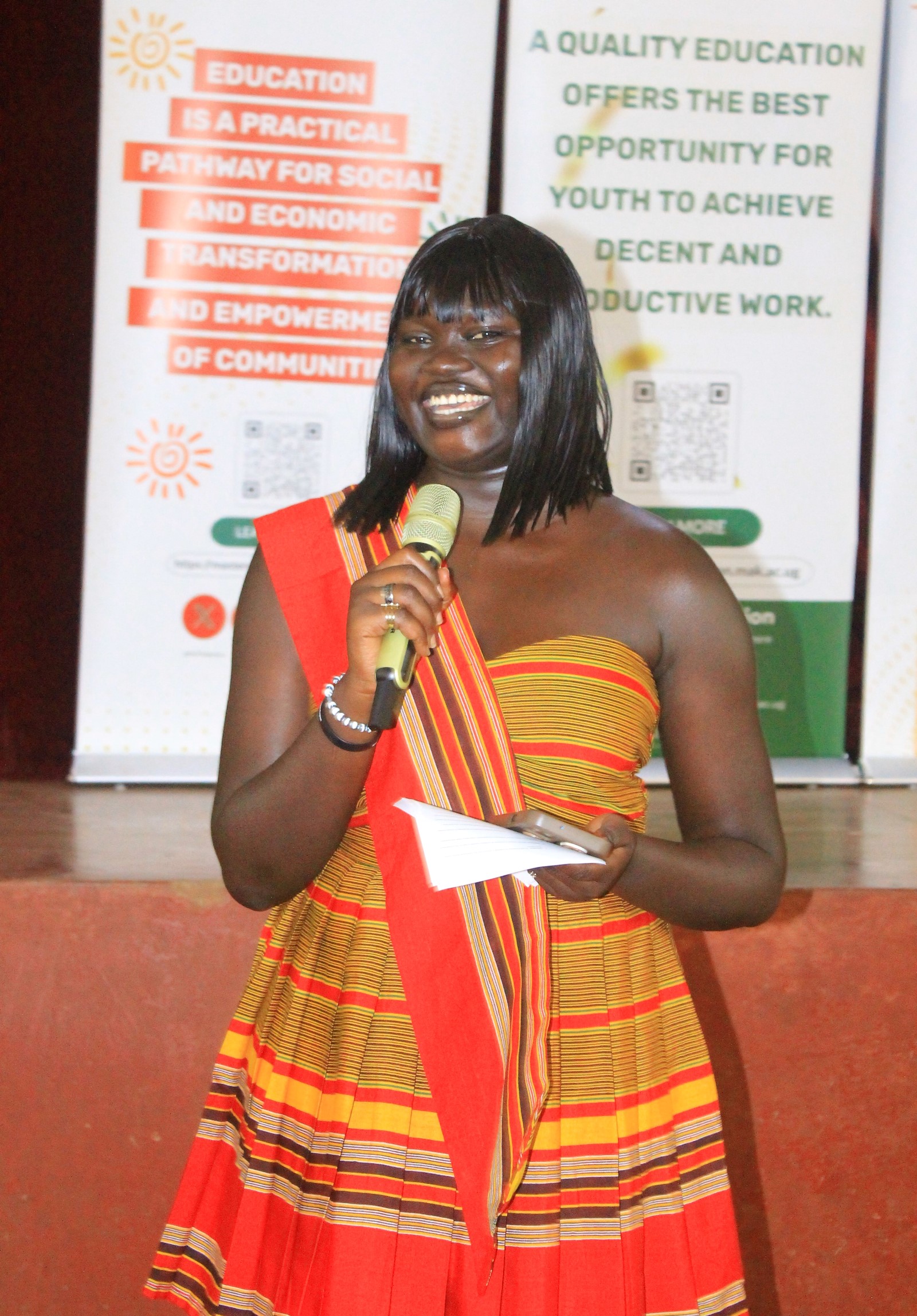
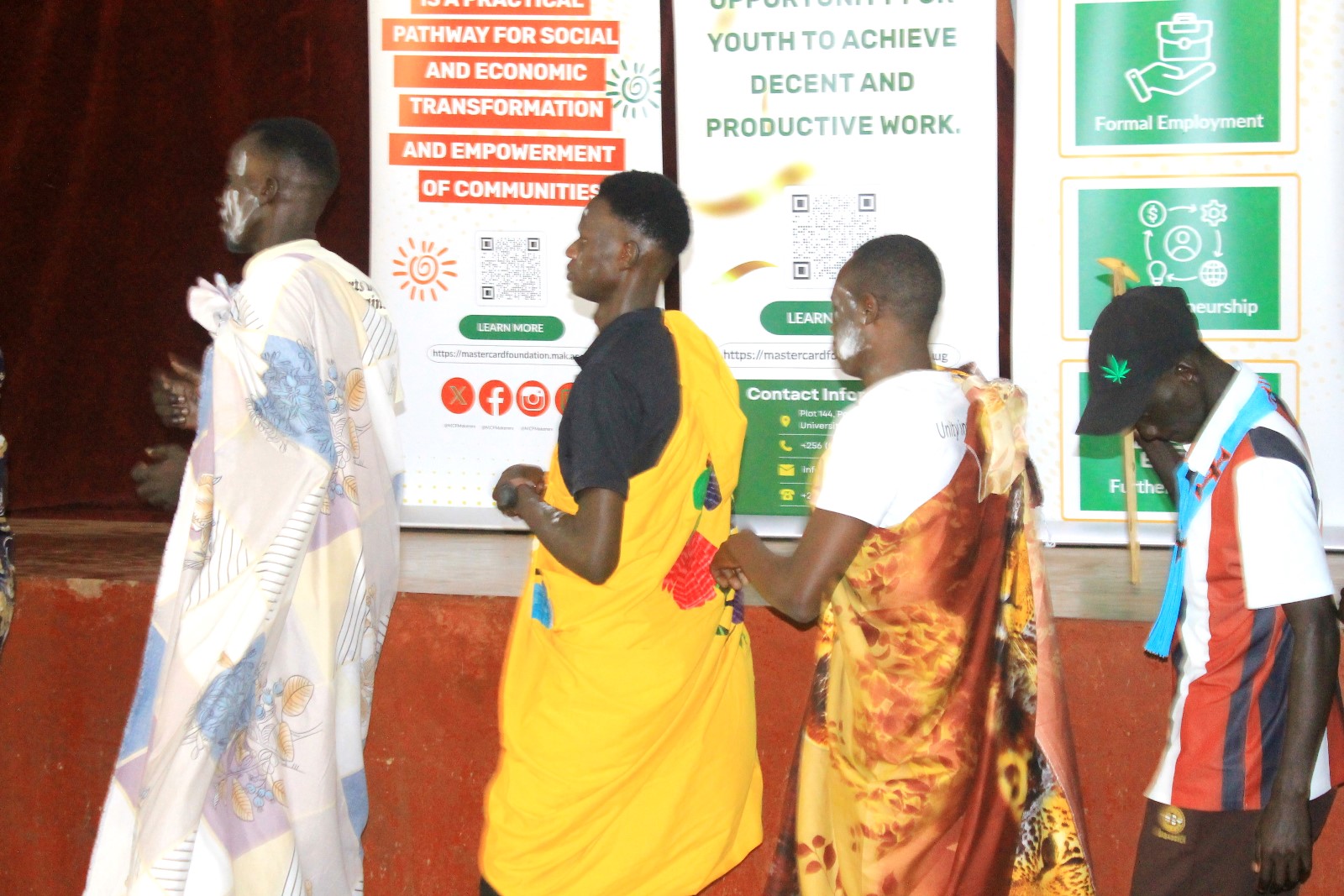
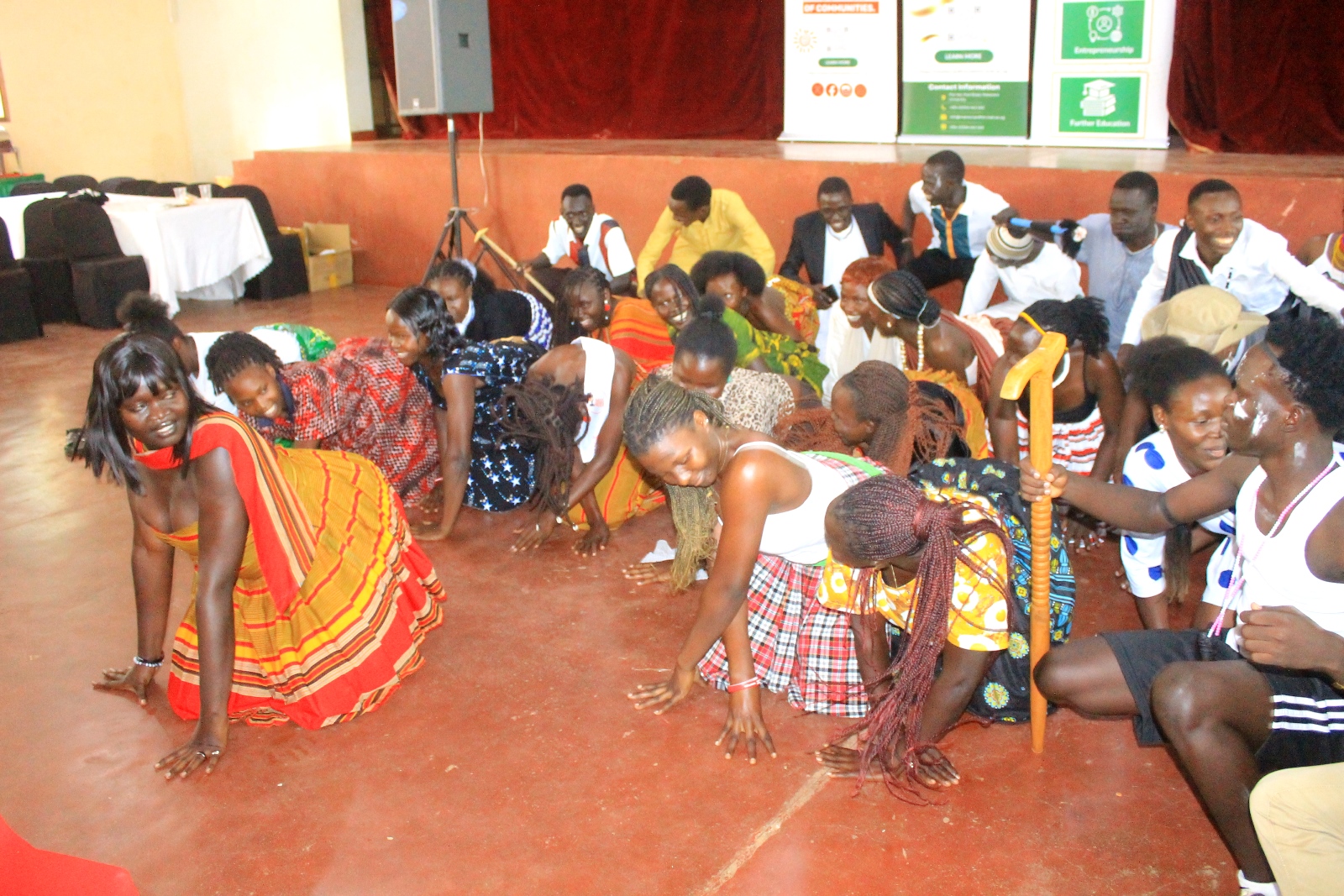
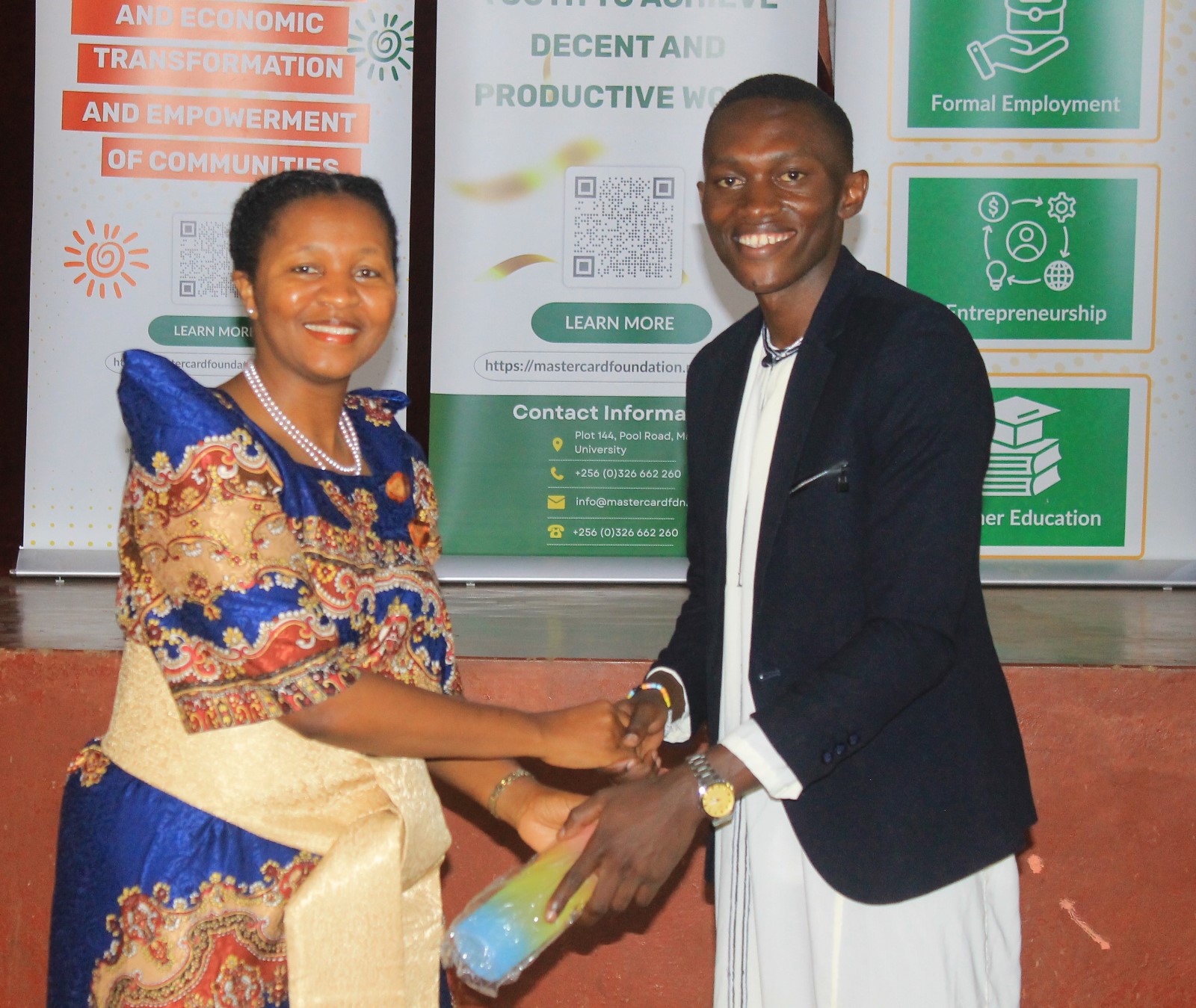
Trending
-

 General2 weeks ago
General2 weeks agoAptitude Exam (Paper 1) Results for the Mature Age Entry Scheme 2026/2027
-

 Health4 days ago
Health4 days agoUganda has until 2030 to end Open Defecation as Ntaro’s PhD Examines Kabale’s Progress
-

 Health2 weeks ago
Health2 weeks agoHow Jimmy Osuret Turned Childhood Trauma into Evidence for Safer School Crossings
-

 General2 weeks ago
General2 weeks agoFor Youth by Youth – Call for Second Cohort Applications
-

 General4 days ago
General4 days agoMastercard Foundation Scholars embrace and honour their rich cultural diversity
